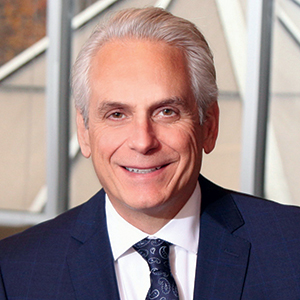Like-kind exchanges can seem complicated, but that shouldn’t stop real estate owners from recognizing their potential.
In a like-kind exchange, those selling commercial/investment real property for an amount that’s greater than their depreciated basis in the property can identify other real property that they’d like to acquire that’s of equal or greater value, and spend all their cash in the transaction, to avoid income tax on the sale (which can be permanently avoided if the seller dies with the replacement property in her/his estate). By doing that, they have much more money working for them to earn a return on the replacement property. Up to 50 percent more can be available for the investment.
“If you’re selling property that’s appreciated and you want to maintain your investment, even if you are open to maintaining it in a passive way, you don’t have to liquidate and pay taxes on the proceeds,” says Steven Dimengo, Managing Partner at Buckingham, Doolittle & Burroughs, LLC. “So, why pay the tax when you can have that money working for you?”
Smart Business spoke with Dimengo about like-kind exchanges and how to unlock their benefit.
What do most people get wrong about like-kind exchanges?
Most people think that the transactions must occur simultaneously — when the property is sold, the replacement property must be immediately acquired. That’s not the case. Sellers have six months to find a replacement property, or they can buy their replacement property before they sell their property. That replacement property could be something that’s passive. It could be a fractional interest in a commercial property, even if it’s purchased through certain trusts that yield a return to the investor.
Sellers can build their replacement property on property they effectively already own through a related entity. They can even pull the cash out by refinancing after they buy the replacement property. A person could trade their vacant land for oil and gas drilling rights or a saltwater disposal well because what constitutes real property is very broadly defined as any real properties. Sellers don’t need to trade an apartment building for another apartment building. All real estate is of like-kind to all other real estate.
Why do some sellers hesitate to use this strategy?
Some property owners are not sure if they want to continue to own real property, so they don’t think to use a like-kind exchange. They don’t want to be involved in active management, or they don’t understand that other types of investments can be used as replacement property if they’re of equal or greater value. Some might think it’s not that big of a deal to just pay the tax, which is silly. But why pay the tax when that money doesn’t need to hit the tax stream and can instead be kept to make additional investments that leverage at least the time value of money?
Often there are questions when real estate that’s being sold is held in an entity, like a limited liability company or partnership. In those cases, there are ways the sale can be structured so that all the owners can gain the benefit as they choose and go their separate ways.
Who should sellers work with to execute a like-kind exchange?
This is an area of the law that necessitates following precise rules. A lot of practitioners don’t set it up the right way. This is why those interested in a like-kind exchange need an attorney who knows what they’re doing to make sure that the process is correctly executed.
Sellers need expert legal guidance from the beginning, before the property is even put up for sale, to ensure the transaction doesn’t run afoul of the law. Getting an attorney involved early who knows what he/she is doing is critical to structuring it the right way.
When done right, a like-kind exchange is easy to accomplish with no risk and the key benefit of not paying tax on the transaction. It can help put the seller in a better economic position with very little hassle. The moneys preserved through the like-kind exchange is then available to reinvest and continue to earn for the investor. Everything else is just a formality as to how to do it. ●
INSIGHTS Legal Affairs is brought to you by Buckingham, Doolittle & Burroughs, LLC.


